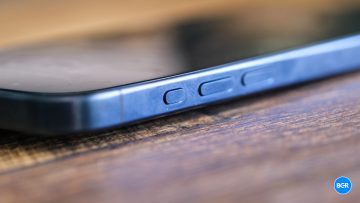The Trump administration banned Huawei from importing any US-made technology a few weeks ago, and the order is still in effect. A number of prominent US companies have already halted business with Huawei, pending the resolution of this conflict, with Facebook being the latest company to cut ties.
Huawei’s smartphone business is in great danger because of that, as the company may end up not being able to launch new Android phones that people would actually want to buy in the near future… if it can even make those devices in the first place. But it’s not just Huawei’s bottom line that might be hurt in the near and distant future, and Google has plenty of reasons to be worried, too.
Huawei already confirmed that it plans to launch its own Android-based operating system very soon, in light of the ban. As we’ve already explained, the ban means Huawei can’t use Google’s version of Android, which includes the Play Store and all the Google apps Android buyers want. Huawei’s OS would still be based on Android, but it’ll have to deliver alternatives to all of Google’s services, which will be a hard thing to pull off in some of the international markets where Huawei has a dominant market share.
As I explained before, Huawei needs Android (and Windows) like fish need water for a different reason. These partnerships with Google, Microsoft, Intel, and other big name US companies offer Huawei the credibility it desperately seeks in the West. Google, Microsoft, and others vouch that Huawei’s devices are secure, in spite of recent security warnings from the US intelligence community.
Google, which complied with the ban on Huawei, just warned the Trump administration that if it moves ahead with the ban, it risks compromising national security, The Financial Times reports (via Reuters).
Google is concerned that an Android version from Huawei would be more susceptible to being hacked, as Google would not be able to update it. First of all, that is a puzzling claim to make given that Huawei would still use Android AOSP as a base, which is still made by Google.
But the security argument only scratches the surface when it comes to Google’s worries. Google might actually be afraid that Huawei is big enough to actually pull off something nobody was able to do thus far, and that’s to create an Android-based operating system that becomes popular with users in spite of not featuring any Google services.
Even if Huawei might be hurt significantly in the short run if the ban persists, the company has the resources to pull off an Android operating system that would be good enough for those smartphone buyers who don’t really care about what OS runs on their devices. And Huawei makes so many appealing handsets, from high-end to low-end, that its hardware will have a big enough international market to hurt Google’s bottom line.
I’m not even considering China for this scenario, where Huawei could easily create its Android fork, as Google is not present in the biggest smartphone market in the world. But having one of the top two Android makers develop a Google-less Android is a nightmare scenario for Google. What if Samsung and others decide to move in similar directions once Huawei proves that it can be done in Europe and other international markets?








